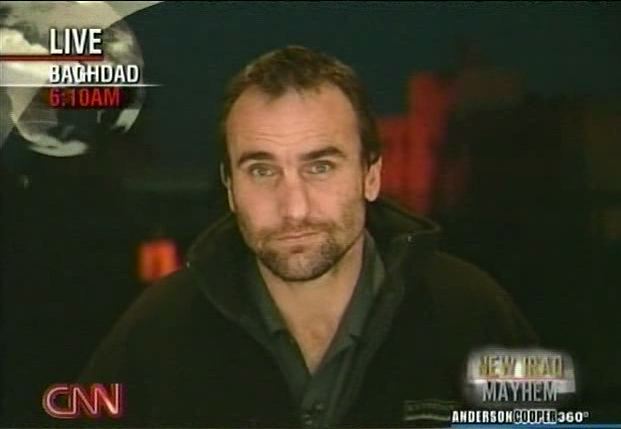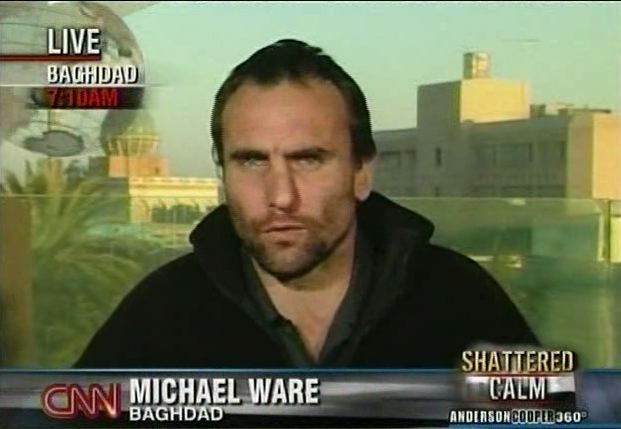AC: More on the "dazzling success."

Click photo to play
Length: 5:16
ANDERSON COOPER: Right now, let's go back to John King in Washington for some important news about America's mission in Iraq -- John.
JOHN KING, CNN ANCHOR: Thank you, Anderson, and back to you in a moment, a remarkable look there in the rain forest. Thank you, Anderson.
As you noted, a string of bombings in and near Baghdad today has left dozens of Iraqis dead. Rebels also hit an American military outpost north of the capital -- three suicide bombs going off, killing two U.S. soldiers and eight Iraqi policemen.
These attacks come at a time Iraq's prime minister has been calling the recent security crackdown in Baghdad, in his words, a dazzling success.
With us now in Baghdad, CNN's Michael Ware.
Michael, let's start with this brazen daylight attack against the U.S. combat outpost by insurgents.
How'd they carry this out?
MICHAEL WARE, CNN CORRESPONDENT: Well, what we are being told, John, is that at least one, perhaps as many as three car bombs -- that's suicide car bombs -- were used, plunging into this heavily fortified former police station that was being used by U.S. forces north of the capital, Baghdad.
Once the car bomb, or the car bombs, if you -- depending on whether you listen to U.S. or Iraqi government officials -- there was then an assault by up to as many as 40 or 50 gunmen, using rocket-propelled grenades, machine guns, and assault rifles, as they attempted to close on that U.S. position and the troops inside, amidst the confusion in the wake of that car bomb.
What we do know is that two U.S. troops were killed and at least 17 were wounded.
KING: A tactic like this, Michael, is this something that is done frequently? And why now?
WARE: Well, it's not done every day, but, yeah, sure. We've seen this quite a few times before.
I mean, there's some absolutely classic examples that stand out for their extraordinary nature: back in April 2005, the multiple car bombings used in a very complex attack on Abu Ghraib prison, another car bomb on a very similar combat outpost in Ramadi in August 2005.
We see these things happen. We've seen the use of car bombs in the same way that the U.S. military would use combat engineers to blow a breach in a wall or in defensive positions. This -- the jihadies use -- the insurgents use their car bombs to plunge in, make a hole, and the hope then is to pour their fighters through the breach.
We do see this, John, from time to time.
KING: And, Michael, let's move on now to this series of bombings rocking Baghdad in the past few days. How does the Iraqi government square the new violence with the prime minister's term of the operation, the security operation, being a dazzling success?
WARE: Well, there has been a dampening, I think you could put it, of some of the sectarian violence in the capital, Baghdad.
I mean, on the streets each morning, the citizens of this metropolis right now are waking up to fewer tortured and executed bodies as a result of the civil war here than they normally do. Rather than the 40 or 50, they are finding as few as five, 10 or maybe 20 in the mornings. So, there has been some softening.
However, even the American commander in charge of Baghdad, the commanding general of the 1st Cavalry Division, when noting that there had been a certain downfall in some levels of violence, said: Let's not get our hopes up here. We have seen this before. Each time we change tactics, the enemy sits back and watches us, thinks, and adapts their tactics.
So, nothing can be read into this. What we are seeing, John, is, rather than a dazzling success, I think everyone, from the U.S. military and the citizens of Iraq will agree, is a war holding its breath, waiting to see what the insurgents' next move is.
KING: Well, Michael, you mentioned an insurgency that repeatedly changes its tactics to adapt. What do you make of these recent reports indicating that the radical Shiite cleric Muqtada al-Sadr has ordered his men to keep a low profile during the security crackdown?
Any indication of whether we ought to believe that, and any indication as to where al-Sadr is?
WARE: Well, there is a lot of chatter to that effect.
Certainly, you can hear it from your sources in Sadr City, the slum -- sprawling slum stronghold here in the capital, Baghdad, a capital of five to six million, where half of those people live in Sadr City.
Now, we are hearing from that militia's stronghold anecdotal reports that, yes, they have been told to put the arms away and stay out of sight. We are also hearing from the U.S. military that they believe that most of the fighters have been told to keep a low profile. And, indeed, much of the leadership may have moved out of the capital for the duration of the offensive.
This is not new. This is what they do every time. It's classic guerrilla insurgent tactics: only fight the fight you know you can win.
KING: Michael Ware, for us in Baghdad on another deadly and depressing day in Iraq.

Click photo to play
Length: 4:18
JOHN KING, CNN CHIEF NATIONAL CORRESPONDENT: With the U.S./Iraqi security clampdown in full swing, people in Baghdad had been enjoying something of a lull in the violence, at least by Iraq standards.
Fewer bombings, fewer shootings. Not as many bodies tortured and dumped throughout the city. Today, though, that lull came to an end in a big way.
CNN's Michael Ware is in Baghdad and joins us once again tonight.
Michael, any explanation why? At the end of last week some optimistic talk, a bit of a lull in the bombing. It seemed like perhaps a reason for optimism. Then, bloody violence again today. Any understanding of why today?
MICHAEL WARE, CNN CORRESPONDENT: Well, John, I think part of the explanation is clearly people shooting their mouths off, speaking well before they should.
How many times do we have to see it in this war? The patterns of violence ebb and flow. There are fluctuations. I mean, there are chess pieces being shuffled across the board here all the time.
We've seen a step up in tempo of government operations against the insurgents here in the capital, Baghdad. So for a couple of days, we started to see a lull. That prompts the trigger-happy -- rhetorically trigger-happy Prime Minister Nouri al-Maliki to come out and declare the operation a dazzling success. Something the American general commanding Baghdad was not willing to do.
In a much more sober assessment, the general said, let's just wait and see what the results are. It's too early to tell if this is going to be a pattern or if in the more likely event that we've seen every other time there's been an offensive, the insurgents are just pulling back, sitting, watching, waiting, learning what the new methods are, adapting and re-attacking.
KING: And Michael, north of the capital, there was a brazen attack today against U.S. soldiers north of Baghdad, killing two soldiers. How did the insurgents carry out this strike?
WARE: Well, John, we've seen this on several occasions throughout the war. It's not a daily event, but it's certainly something we've become accustomed to or that's not a surprise. The use of suicide car bombs.
In this case, we're told there was one, perhaps three, that were used to plunge into the heavy fortifications protecting the band of U.S. troops in an abandoned police station.
This precedes a mass assault by what we're told today was as many as 50 gunmen. We've seen this several times before.
KING: Michael, you just heard Nic Robertson talking to Kiran about this al Qaeda resurgence inside of Pakistan. What about inside Iraq? Have you heard al Qaeda is also making a comeback there, including a push in Baquba? What can you tell us about that?
WARE: Well, al Qaeda hasn't had to make a comeback here in Iraq, nor has it had to do so in Waziristan. I mean, I've run through the mountains of Waziristan two years ago and al Qaeda owned them back then. Why are we surprised that they still own them now and the hierarchy is restructured?
Here in Iraq, despite any arrest, despite any pressure that you're able to put on the organization in this country, in this war, they regenerate. This is an organization built and designed for loss. They're always ready to refill their ranks. And we see it time and time again.
Indeed, this is an al Qaeda organization that's under so much pressure, we're told, it feels fit to declare an Islamic state through a third of the country, which includes Baquba, Baquba in Diyala province, which has always been an al Qaeda stronghold.
Back in 2005, we saw them overrun a police station in Baquba and fly the al Qaeda flag, or the then Tawhid wal Jihad flag. That has been a part of their running ground, their range since the beginning.
And we're acting like it's a surprise that they are strong there. They're not reconstituted. They're just reappearing -- John.
KING: Michael Ware for us tonight in Baghdad.
Michael, thank you very much.
And now back to Kiran in New York for a look at more of what's still ahead this hour in 360.
